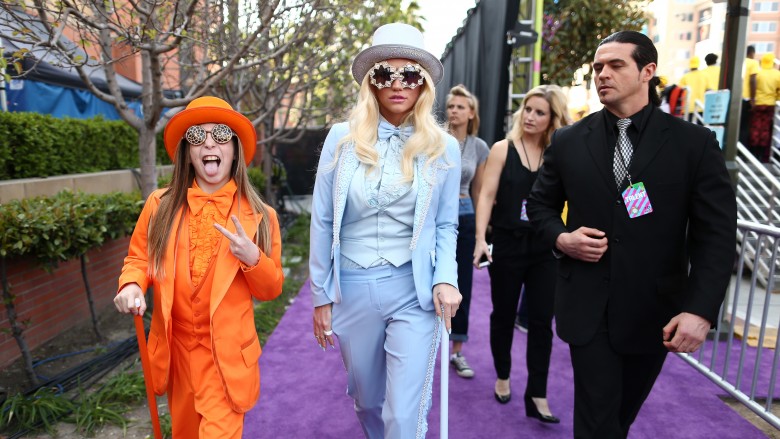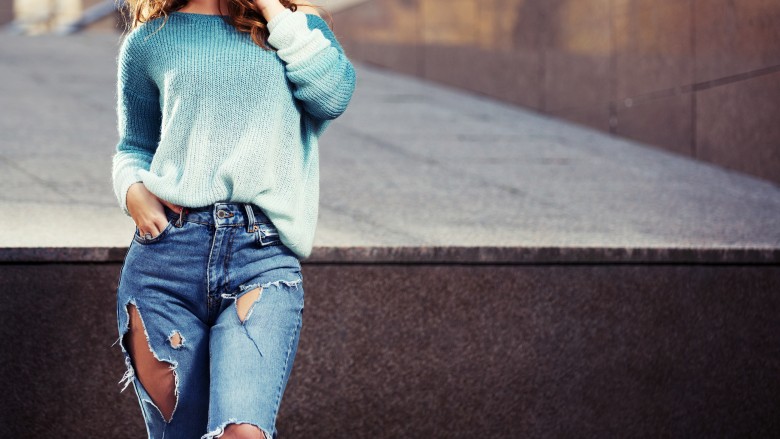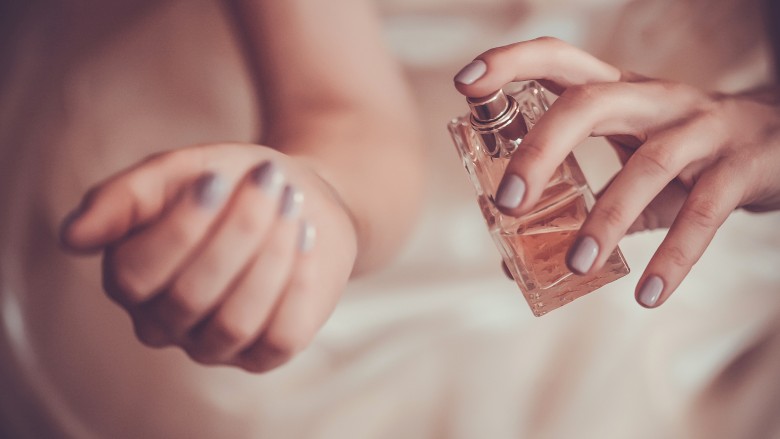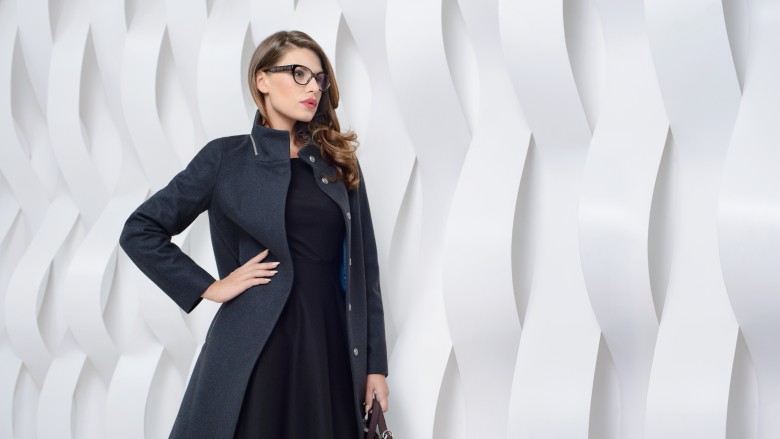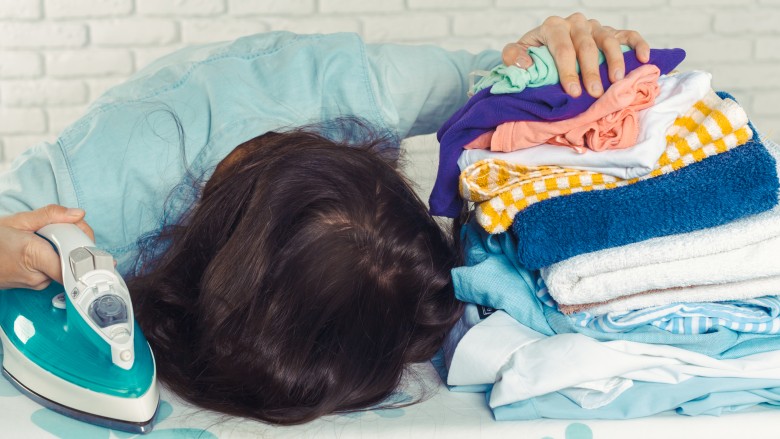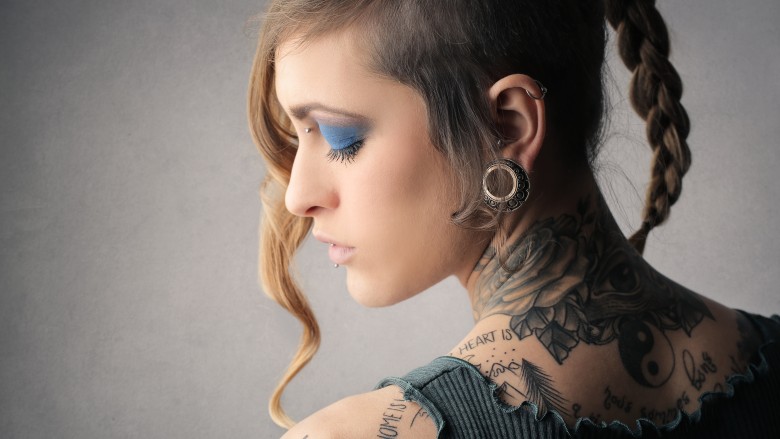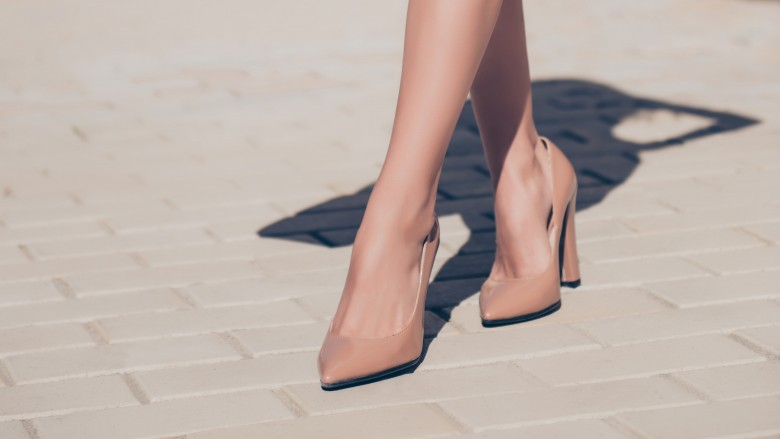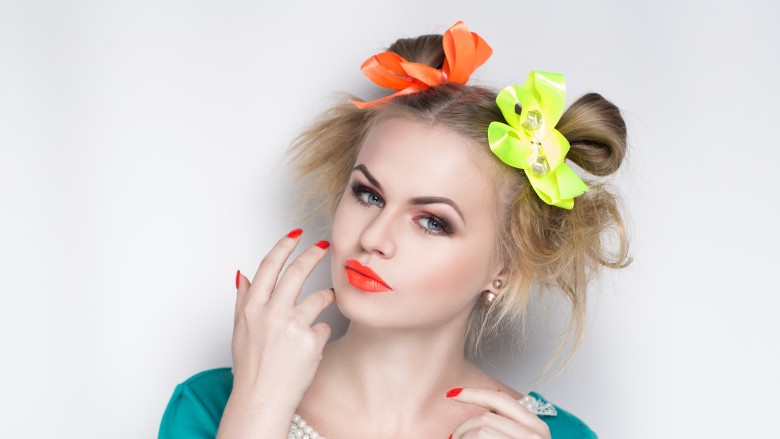10 Things You Should Never Wear To A Job Interview
A job interview is one of the most high-stress situations any of us are ever likely to find ourselves in. But the old adage still stands: fail to prepare, prepare to fail. You may not be able to control exactly how the meeting itself goes, or even whether you get the job. But, as with most things in life, if one is dressed correctly, everything else is more likely to run just a little bit smoother.
How often has wearing the right shoes only for the heavens to open later in the day made you feel like the most powerful person in the world? Job interviews follow the same thought process. If you're dressed right, everything else that's thrown your way will feel a bit easier to manage.
Certainly, you don't want to be the person sitting there tugging her skirt down or wishing you'd gone ever so slightly more/less formal. Here are our top tips from industry experts, focusing on the ten biggest no-nos when it comes to dressing for a successful job interview:
Research the company
Although it may seem like 'dress nicer than you think you should' is a hard and fast rule of job interviews, you need to keep in mind that, especially nowadays, certain job environments may be more casual than anticipated. Your best bet is to research the company first. In doing so, you can avoid looking overly formal and feeling a bit embarrassed as a result, or turning up in board shorts and finding yourself sat opposite someone in a three piece suit.
As Michelle Petrazzuolo, founder and CEO of Level Up Prep, explains "the biggest mistake people make... is not dressing for the company's culture. It's a signal to the interviewer that you might not fit in with the group you'd be working with. If you show up to a job at a tech startup in a conservative suit, you'd seem out of place, just as you would if you appeared for a job at a Wall Street investment firm in khakis and a polo shirt".
Olivia Jaras, founder of Salary Coaching For Women, doubles down on this idea: "What it comes down to is understanding the culture of the company. If you're interviewing for Hooters, I think it is appropriate to show some cleavage. If you're interviewing for a corporate job, particularly if the hiring manager is a female, it might not be well received. Your attire for interviewing at Facebook is probably going to be very different than if you were interviewing for Proctor & Gamble".
Monica Hickey, board member of Madison Magnet and director of Ideas That Evoke, suggests taking a look at the company's social media or website to get an idea of how to dress for the interview. Ask yourself "Are people featured in jeans? Are all of the individuals in suits?" before deciding what to wear on the day.
It seems obvious, but showing initiative right off the bat could be the difference between nailing the interview (and landing the job) and finding yourself sent off with a handshake and a crisp "good luck with your future endeavors".
Don't wear anything too distracting
Job interviews are often short. You may be given as little as ten or fifteen minutes to sell yourself and who you are as a person. Try to remember that it may be difficult for the interviewer to focus on what you're saying if you've got a big glittering necklace blinding them.
As Petrazzuolo notes, it's all about selling you and your abilities. Individual style doesn't really come into it in an interview setting. "You may have... a chunky statement necklace that you adore, but if you become 'the girl who wore that crazy accessory' it will be easy for the interviewers to forget your great qualifications. This goes double for anything that seems better suited for the club than the office"
Jaras concedes "heavy jewelry tends to be detrimental and distracting from the message you're trying to convey with your words and non verbal cues. In other words, your jewelry will be doing all the speaking. Any other message you're trying to convey will be relegated to the back burner."
Avoid items that are unclean or torn
Who among us hasn't rushed out the door with a hole in our tights and reasoned that nobody will really notice anyway? With job interviews, attention to detail is key. Whatever impression you put across with your clothing, hair, make-up, etc. is how the interviewer is going to see you as a person and, crucially, a potential employee.
It may be 'in' right now, but grungy, fashionably worn or ripped clothes aren't acceptable in an interview setting. Author and entrepreneur Richie Frieman told me, unequivocally, that "For a job interview, you come put together with no threads hanging off."
Of course, accidents happen, but try to avoid looking messy or unkempt as this may give the impression that you're a bit of a scatterbrain when it comes to work, too. As Christina Austin, founder of ExecBrands LLC notes "the interviewer might determine from an unprofessional appearance that your work will similarly be sloppy and lacking in attention to detail."
Leave your favourite perfume at home
We all want to smell nice, particularly in high-stress situation where we're being scrutinized and judged. But there are times when one simply shouldn't be smelled before one is seen, and an interview is one of those times.
Petrazzuolo explains that, aside from your signature fragrance not being a guaranteed hire, "There are major downsides to wearing it that don't make it worth the gamble. Many people have allergies or feel ill when they smell a strong fragrance, and indeed many companies have adopted no fragrance policies. Skip it and avoid the risk."
Bruce A. Hurwitz, executive recruiter and career counselor of Hurwitz Strategic Staffing Ltd., further notes that "wearing perfume, cologne or scented aftershave is a sign that the person does not think about others. Just because they like the smell doesn't mean others will and you can't have a successful interview if the interviewer literally can't stand being in the same room with you."
Go for a dependable, roll-on deodorant, to ensure you don't reek on arrival. But it's probably best not to risk poisoning the person tasked with hiring you before you've even opened your mouth.
When in doubt, button up
Unless it's Hooters, put them away. As women, we need to be particularly careful not to promote the wrong image. Always cover up, rather than show off. Hickey suggests that the old adage of dressing for the job you want, not the job you have, still stands: "A blazer... will always allow you to appear professional no matter how casual the workplace."
Frieman takes it even further, claiming that one should dress "ABOVE what you want" and never "dress down for the job" no matter how casual the setting.
Don't forget to iron in advance
It seems obvious, but ensuring your clothes are wrinkle-free is one of the easiest and most important elements to getting a job interview outfit right. Who could forget Lauren Conrad frantically using her straightening iron to free her skirt of wrinkles prior to a last-minute change in the time of her interview at Teen Vogue on The Hills?
Frieman notes "It's highly unacceptable to come to work with an outfit that is not ironed. It's the simplest way to look nice. Either iron it yourself or take it to the cleaners. For $5 you can have your shirt, pants/skirt, etc."
No piercings or visible tattoos
As much as it kills me to write this (because I have plenty of both), the majority of workplaces are still not open to body piercings or visible tattoos. It may seem like a good idea at the time, but that hand tattoo Rihanna's rocking isn't going to work on you when you're in an office setting, with your hands displayed on your desk all day long.
Starbucks has relaxed their policy on this in recent years, but that doesn't mean the rest of the world is about to follow suit — particularly in a corporate setting. It won't kill you to take out that nose or lip ring for your five day a week, 9-5 job (trust me, I've done it for years) and the same applies for your interview.
Abtin Mehdizadegan, an attorney at Cross, Gunter, Witherspoon & Galchus PC, has seen for himself that many businesses and workplaces have a zero tolerance policy for tattoos and piercings. "I have had some clients refuse to hire individuals because they had tongue piercings, eyebrow piercings, and — more recently — "Monroe"-style piercings. Removing these piercings will almost certainly increase an individual's chance of success during the interview".
Test drive your outfit in advance
We've all bought stuff online, or even off the rack, only to arrive home and find it doesn't fit quite right. If we love the item enough, we'll wear it anyway, no matter how uncomfortable it might make us. A job interview is the last place you want to be squirming in your seat (save that for difficult questions and deep stares from the person opposite). So, to save yourself the discomfort, ensure you try your outfit on and test it out well in advance.
As Brandi Britton, district president of staffing firm Office Team, notes, "Don't wear something you just bought without test-driving it to make sure it fits well and you look comfortable and confident in it." Discomfort shines through just as much, if not more, than confidence. Don't make things even harder on yourself.
Rebecca Vertucci, an expert on recruiting, hiring, and the co-founder of the Vertucci Academy puts it simply: "What you wear and how you feel builds your confidence. If you look confident and put together, your behavior will follow."
Shoes are more important than you realize
You're probably thinking, they will be under a desk/chair — who's even looking at them!? The answer is: everybody. Job interviewers, especially, are looking at every little detail on potential candidates, right down to their shoes.
Britton notes that "scuffed shoes could make people think you lack attention to detail". Pujah Shah, brand director of WINQ, advises candidates not to "throw on a pair of sneakers, or an old, beaten-up pair of pumps. You don't have to spend a fortune, but it's important to invest in quality footwear. The goal is to look polished and professional from head to toe."
Nothing too bright or attention-seeking
Avoid anything offensive, politically or racially-charged — that should go without saying. But also be careful not to dress too attention-seeking in general because, more often than not, it will make you memorable for all the wrong reasons. Britton advises against "bright colors, wild patterns or excessive accessories. You want to be remembered for the right reasons, not because your outfit was distracting".
Vertucci notes that "If you're the best person who walked through the door, but all they can remember is your bright orange lipstick" you most likely won't get the nod. Individuality is good, just as long as it's reined in to fit the situation. As Steve Pritchard, HR consultant at Ben Sherman, notes "clean shoes mean a lot [and] suits are a great way to stand out when matched to a vibrant shirt".
It's also important to note, as Brad Stulz, HR Coordinator for Totally Promotional, explains that "how you dress shows the company how you will represent them to clients and the outside world".
Present your best self
As with anything in life, the most important element to any job interview is preparation. And this extends to the outfit you choose to wear, right down to the tiniest detail — from how neatly your hair is styled to how clean your shoes are. Try to remember, as each of the featured experts has stated one way or another, that you are a walking advertisement for yourself as a prospective employee. Ensure you present yourself as the best person for the role by putting your best foot forward in a clean, polished, well-chosen and well-researched outfit.
At least that's one thing you won't have to worry about before stepping through the door.


